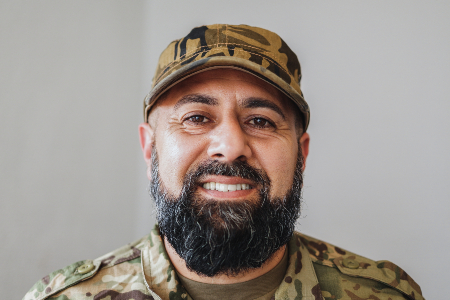Avoidant Personality Disorder (AVPD) is one such personality disorder that can impact a person’s life. Learn more about Solara’s treatment for Veterans.
Avoidant Personality Disorder
Mental health is essential for our overall well-being, and when it comes to personality disorders, early detection, and treatment are critical. Avoidant Personality Disorder (AVPD) is one such personality disorder that can significantly impact a person’s life, causing them to avoid social situations, develop low self-esteem, and experience other distressing symptoms. Let’s explore the definition, causes, symptoms, diagnosis, and treatment of Avoidant Personality Disorder, with a focus on the approaches used at Solara Mental Health in San Diego, California.
Definition of Avoidant Personality Disorder
AVPD is a mental health condition that falls under Cluster C Personality Disorders. People with AVPD are characterized by persistent feelings of inadequacy, sensitivity to criticism, and social inhibition. Individuals with AVPD typically have a deep-seated fear of being rejected, criticized, or embarrassed, which can lead to avoiding social situations, even to their detriment.
Causes of Avoidant Personality Disorder
The exact cause of AVPD is unknown, but like other personality disorders, it is thought to be a combination of genetic, environmental, and social factors. Children who have experienced neglect, abuse, or emotional trauma may develop AVPD as a coping mechanism. They may feel that they cannot trust others, and as a result, they may become socially withdrawn and avoid social interactions. Genetics also plays a role, and research has shown that personality disorders may be hereditary.
Symptoms of Avoidant Personality Disorder
People with AVPD experience a range of symptoms that can impact their ability to function effectively in their personal and professional lives. Symptoms of AVPD include:
- Fear of rejection or criticism
- Low self-esteem
- Self-isolation
- Avoiding social situations and events
- Feeling socially awkward or inept
- Difficulty making friends or forming close relationships
- Feeling inferior to others
- Perceiving criticism or rejection where it is not intended
- Heightened sensitivity to rejection or criticism
- Difficulty with intimacy and trust
Diagnosis of Avoidant Personality Disorder
Diagnosing AVPD requires a thorough evaluation by a mental health professional, such as a psychiatrist or psychologist. The diagnostic criteria for AVPD include the following:
- A pervasive pattern of social inhibition, feelings of inadequacy, and hypersensitivity to negative evaluation
- The individual avoids occupational activities that involve significant interpersonal contact because of fears of criticism, disapproval, or rejection.
- Is unwilling to get involved with people unless they are certain of being liked.
- Shows restraint within intimate relationships because of the fear of being shamed or ridiculed.
- Is preoccupied with being criticized or rejected in social situations.
- Is inhibited in new interpersonal situations because of feelings of inadequacy
- Views self as socially inept, personally unappealing, or inferior to others.
- Is unusually reluctant to take personal risks or to engage in any new activities because they may prove embarrassing
Treatment of Avoidant Personality Disorder
AVPD is treatable, and the earlier the diagnosis, the better the chances of recovery. At Solara Mental Health, a range of evidence-based therapies is used to treat AVPD.
Cognitive Behavioral Therapy
Cognitive Behavioral Therapy (CBT) is a psychotherapeutic approach that helps people identify and change negative patterns of thinking and behavior. CBT can be used to help people with AVPD identify and challenge their negative thoughts about themselves and others. Therapists may use exposure therapy to gradually expose individuals with AVPD to social situations, allowing them to develop coping mechanisms and gain confidence.
Dialectical Behavioral Therapy
Dialectical Behavioral Therapy (DBT) is a form of cognitive-behavioral therapy that emphasizes acceptance and change. DBT can help individuals with AVPD develop mindfulness, interpersonal effectiveness, emotion regulation, and distress tolerance skills. These skills can help individuals with AVPD cope with difficult emotions and navigate social situations more effectively.
Medication
While medication is not a cure for AVPD, it can help alleviate some of the symptoms associated with the disorder. Antidepressants such as Selective Serotonin Reuptake Inhibitors (SSRIs) can be prescribed to help individuals with AVPD manage symptoms of anxiety and depression.
Prevention of Avoidant Personality Disorder
While the causes of AVPD are not fully understood, there are some steps that individuals can take to reduce their risk of developing the disorder. Early intervention is key, as individuals who receive treatment for anxiety or depression during adolescence or early adulthood may be less likely to develop AVPD later in life.
Developing healthy coping strategies and learning effective communication skills can also help reduce the risk of AVPD. This can include practicing assertiveness, setting boundaries, and developing a support network of trusted friends and family members.
Additionally, participating in activities that challenge social anxiety can be beneficial. This may include joining a social club or group, volunteering, or taking classes or workshops that involve public speaking or other social interactions. Overall, while it may not be possible to prevent AVPD entirely, taking steps to promote mental health and well-being can help reduce the risk of developing the disorder.
Alternative Therapies for Avoidant Personality Disorder
In addition to traditional evidence-based therapies, some alternative therapies may be helpful for individuals with AVPD. These therapies are typically used in combination with traditional therapies and should not be used as a substitute for evidence-based treatments.
They include:
- Art therapy: One such therapy is art therapy, which can help individuals with AVPD express themselves creatively and explore their emotions in a safe and supportive environment. Art therapy can also help individuals develop a stronger sense of self-esteem and confidence.
- Animal-assisted therapy: Another alternative therapy that may be helpful for individuals with AVPD is animal-assisted therapy. This therapy involves working with animals, such as dogs or horses, to develop empathy, trust, and emotional regulation skills. Animal-assisted therapy can also provide comfort and support to individuals with AVPD, who may find it easier to connect with animals than with other people.
While alternative therapies may not be effective for everyone, they can be a valuable addition to a comprehensive treatment plan for individuals with AVPD. Working with a mental health professional is important to determine which therapies may be most helpful for your individual needs and preferences.
Personality Disorders Among Veterans
Personality disorders are fairly common among combat veterans. And many veterans diagnosed with PTSD suffer co-occurring symptoms of other mental health conditions, including personality disorders such as HPT.
Solara Mental Health in San Diego, California, has a contract with VA insurance which allows them to provide affordable mental health services to veterans. Solara offers treatment for personality disorders—including histrionic personality disorder—to veterans in need. With authorization, Solara can also provide transportation, housing, and other accommodations for veterans.
At Solara Mental Health, veterans can receive treatment for a variety of conditions and disorders, including antisocial personality disorder. Contact us today to learn more about our treatment options, including what mental health services may be covered by the VA.
Get the Help you Need at Solara Mental Health
Avoidant Personality Disorder can be a challenging condition to live with, but it is treatable with evidence-based therapies. At Solara Mental Health, a team of dedicated professionals provides personalized and holistic treatment to veterans struggling with mental health conditions, including AVPD. By combining therapy and medication, individuals with AVPD can learn to manage their symptoms, develop confidence, and improve their quality of life. If you or a loved one is experiencing symptoms of AVPD, contact us for a confidential assessment and personalized treatment plan.





